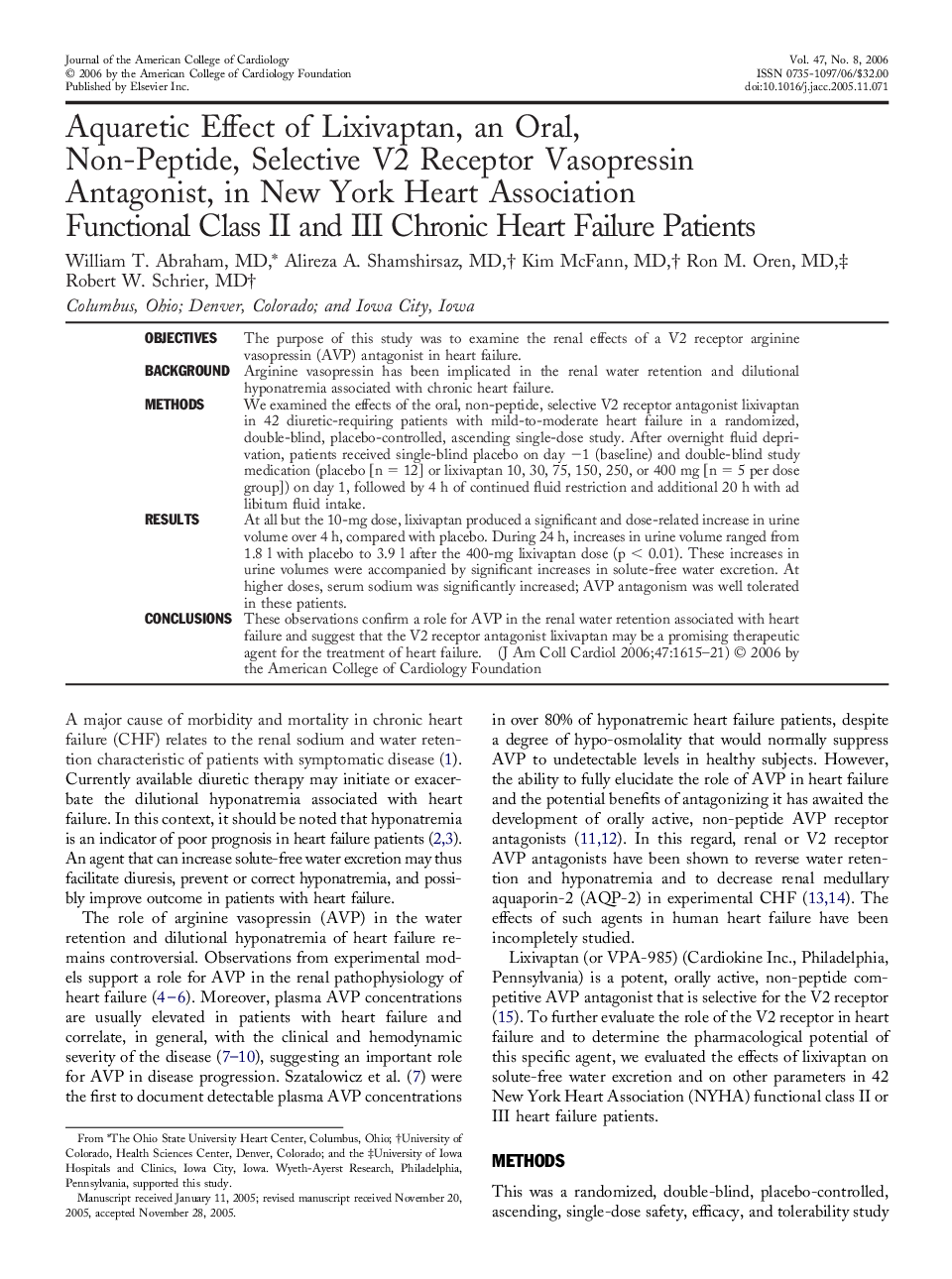| Article ID | Journal | Published Year | Pages | File Type |
|---|---|---|---|---|
| 2952327 | Journal of the American College of Cardiology | 2006 | 7 Pages |
ObjectivesThe purpose of this study was to examine the renal effects of a V2 receptor arginine vasopressin (AVP) antagonist in heart failure.BackgroundArginine vasopressin has been implicated in the renal water retention and dilutional hyponatremia associated with chronic heart failure.MethodsWe examined the effects of the oral, non-peptide, selective V2 receptor antagonist lixivaptan in 42 diuretic-requiring patients with mild-to-moderate heart failure in a randomized, double-blind, placebo-controlled, ascending single-dose study. After overnight fluid deprivation, patients received single-blind placebo on day −1 (baseline) and double-blind study medication (placebo [n = 12] or lixivaptan 10, 30, 75, 150, 250, or 400 mg [n = 5 per dose group]) on day 1, followed by 4 h of continued fluid restriction and additional 20 h with ad libitum fluid intake.ResultsAt all but the 10-mg dose, lixivaptan produced a significant and dose-related increase in urine volume over 4 h, compared with placebo. During 24 h, increases in urine volume ranged from 1.8 l with placebo to 3.9 l after the 400-mg lixivaptan dose (p < 0.01). These increases in urine volumes were accompanied by significant increases in solute-free water excretion. At higher doses, serum sodium was significantly increased; AVP antagonism was well tolerated in these patients.ConclusionsThese observations confirm a role for AVP in the renal water retention associated with heart failure and suggest that the V2 receptor antagonist lixivaptan may be a promising therapeutic agent for the treatment of heart failure.
